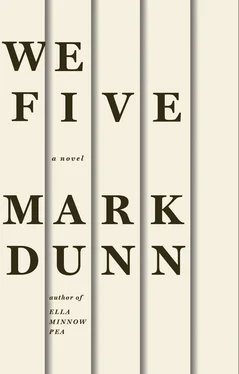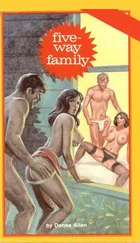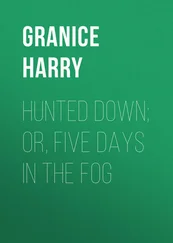“Three. ‘Anarchy reigns.’ All rules simply disappear. It is every man to his own defence, every man by his own conscience — should such a thing as conscience withstand the crucible of communal crisis.
“One of my colleagues — Dr. Haverson, in the astronomy department — he’s conducting research on the relationship between coronal mass ejections — those bursts of solar wind and electromagnetic radiation that sometimes get tossed by the sun far into space — which means, on occasion, right at us —and thermospheric auroras — the Borealis and Australis — examining the degree to which the auroras are intensified by these solar events. I mention this because he and I had a very interesting discussion the other day about something quite extraordinary that took place in a small mill town outside of Manchester in 1859. It was coincident to the first recorded observation of a solar flare, and the solar storm that went along with it. The storm was the biggest there has ever been — at least since astronomers acquired the ability to recognise them. The result of this event was one of the most chilling examples of mass hysteria ever recorded.”
“Mass hysteria?” asked Ruth.
“The whole town, to put it in the vernacular, losing its bloody mind.”
“I don’t understand. Just because the sky lit up with beautiful colours?”
“It was a little more than simply beautiful colours. Are you going to eat that biscuit? Thank you. The whole sky lit up like noontide in a cloudless desert, even though it happened in the middle of the night. For the people of Tulleford it augured the end of the world. Armageddon. Whatever apocalyptic designation you wish to put to it. I mention this because it’s the best example I can think of for the kind of disorder and chaos that hasn’t really any underlining purpose. It’s the human animal in a state of utter madness. Chickens running about without their heads. This is what happened in Tulleford in the early hours of September 2, 1859. I fear this is just the sort of madness into which we will descend should this terrible war go on for too long. We’ll lose every covenant of civilized society. We’ll even lose our instinct for self-preservation. We’ll be like those who jump to their deaths from burning buildings — mindlessly trading one form of death for another.”
Carrie got up and left the table, putting herself in a chair across the room. Molly watched her, along with all the others, and then turned to Professor Prowse and said, “Whatever your reason for bringing all this up, Professor Prowse, I don’t see it. It isn’t any wonder you don’t sleep well at night, if these are the sorts of loathsome thoughts you live with every day.”
Bella rushed to her husband’s defence. “Molly! What a horrible thing to say!”
Molly’s jaw tightened. “I meant every word of it. We’re all trying our best to cope with some very trying circumstances, and yet your husband seems to feel the need to tell us about something that happened years and years ago that does us no good whatsoever. I don’t want to hear about it and I don’t think my sisters do either. We’re tired of being frightened. And we’re tired of being depressed. And I don’t have to sit here and listen to someone who seems to want to make me— us— even more afraid and even more depressed than we already are.” Molly got up from the table.
Professor Prowse rose as well. He looked thoroughly chidden. “I’m sorry I brought up the Tulleford incident. I truly am. Sometimes I forget I’m not standing behind my lectern addressing my students.”
Molly wasn’t yet ready to suspend her reproof: “I don’t fancy your students would much appreciate this sort of talk either.”
“You’re right, dear girl. There’s a proper time and a proper place for dispassionate scholarship, for detached analysis. This is neither a fitting time nor setting. I must say, though — and you must certainly see the inherent irony — that this does return us to my original thesis: that we live in a most extraordinary era in which the human animal is apt to behave in wildly unpredictable ways — ways that aren’t governed by any of the rules of conduct we’ve laid down.”
“But we don’t toss away everything we are as human beings,” put in Maggie from across the room. She had gone to be with Carrie. “The species simply couldn’t survive if we did.”
“No, Miss Barton. It could not.” Prowse sighed heavily. “My lecture for the evening is over. Let’s talk about something else. Or perhaps I should finish eating my tea in silence and then return to blissful, oblivious slumber. I used to dream. I don’t anymore. My mind becomes an empty blackboard. And I wouldn’t have it any other way.”
The words had hardly left Prowse’s mouth before the local air raid siren began to sound. It was still light outside. This evening’s visitation of terror from the skies was coming a bit earlier than usual.
Bella Prowse arched an eyebrow and half smiled. “Ah, now the moment of truth. Do we sit about this table and ignore the howl of — how was it you put it last night, Reggie?”
“The Teutonic banshee.”
“Or do my husband and I fly to our Andy and to the tedious company of the Jossers and the Collinses who share it with us, and you flee with all the rest of the neighbourhood up the High Road to the Balham Underground?”
“I’m too fagged to move,” said Jane.
“Then I’ll carry you,” said Lyle. “We shouldn’t stay here.”
Jane sat up in her chair. “But what about — oh, you didn’t hear. You were out of the room attending the necessary. There’s a theory among many of the residents of this street that Hitler won’t strike here because of a rum attachment to the Du Cane.”
“That’s daft,” said Lyle. “Hitler may like that building. But that don’t mean Goering does.”
Carrie smiled and shrugged. “Lyle does have a point.”
We Five lifted themselves begrudgingly from their chairs. “Take whatever you like from the larder,” said Bella. “I also have playing cards, and Ludo, and Snakes and Ladders, and there are books in the study. They’re mostly Reggie’s so at best they’ll put you to sleep for a while. But do put a jerk in it. The station is five blocks away and you haven’t time to dally.”
Ruth shook her head in amazement. “Look at you. You have become the mother hen.”
“Just cheese it, Ruth. And you needn’t tuck those biscuits away so furtively. Take as many as you want and don’t feel the least bit guilty about it.”
“You’re a love,” said Ruth, blowing a kiss across the table.
We Six hurried up Balham High Road to the tube station. All round, others were doing the same — parents holding the hands of un-evacuated children; old men and women, who could not help being reminded that they had done much the same thing during the First World War, that some things seemed destined never to change. Some of those in the road wore haversacks and carried blankets and Thermos flasks, prepared for a long night. One woman scuttled along dressed in only a pink night robe and matching pink swan’s-down slippers. But others didn’t seem in any hurry at all. They had been through this drill often enough before; someplace else would get the first pasting — that was usually the way, wasn’t it? Or they would wait for Balham to sufficiently hunker down before paying their own reluctant visit to the community shelter.
Keep Calm and Carry On .
We Are Open for Business .
Hitler will not defeat us .
I will duck my head when I’m good and ready, you bloody flying monkeys .
During air raids, the Balham Underground ticket window was closed. No one was expected to buy a ticket when the farthest they’d be traveling was down to the end of the station platform. Take your pick: southbound or northbound? As the six crossed the crowded booking hall to step upon the rattling down-escalator, they randomly chose the south platform. Others were choosing the same — people who, before the night was over, would find their lives coming to a swift, tragic end.
Читать дальше












